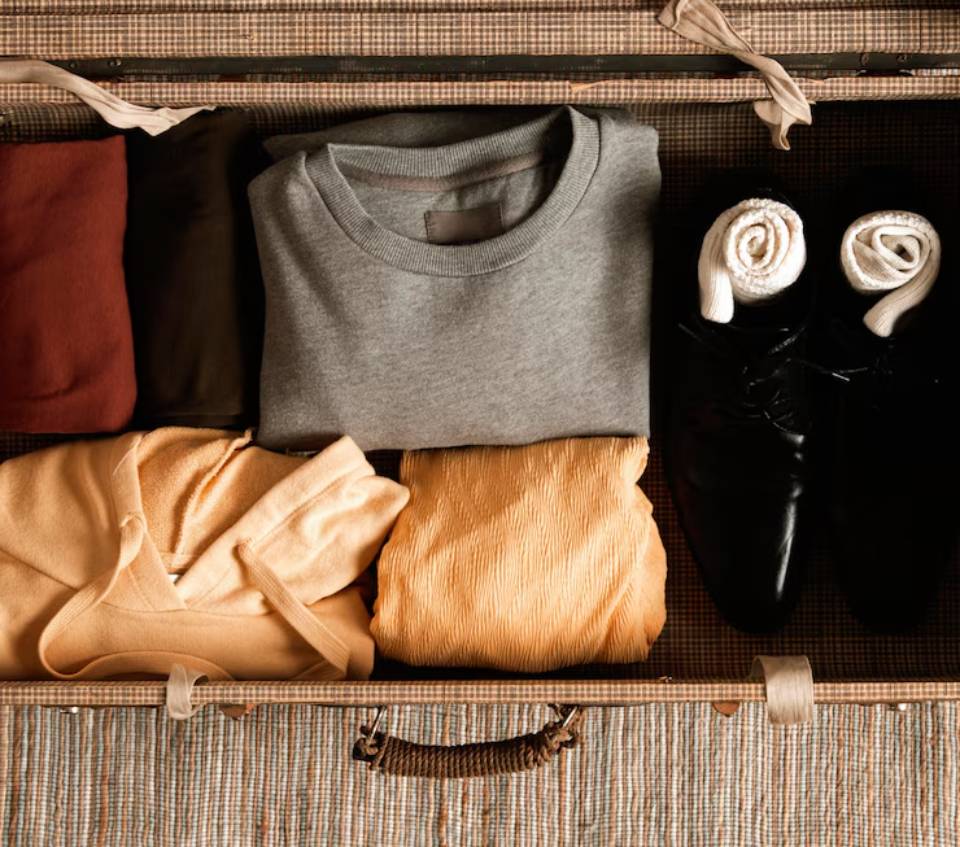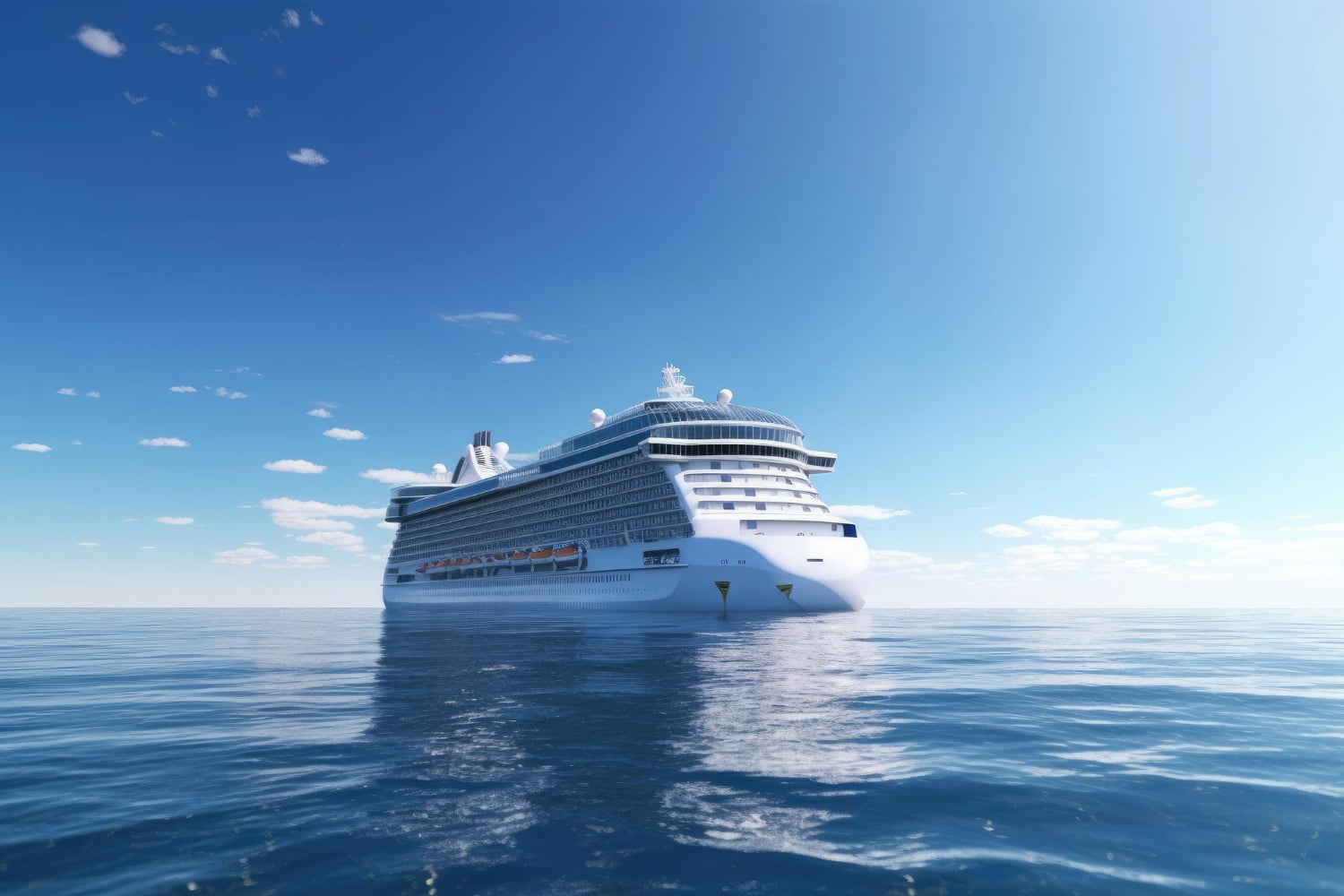
Packing for Different Climates: From Alaska to the Caribbean
Cruise holidays are unique in that they can whisk you from tropical beaches to icy fjords in a matter of days — or even hours. Whether you’re sunbathing in the Bahamas or glacier-gazing in Alaska, one-size-fits-all packing simply doesn’t work. Unlike land-based trips, you’ll often have limited space, no access to local shops, and activities ranging from poolside lounging to rugged hiking.
That’s why packing strategically for different climates is essential. From choosing travel clothing that layers well to selecting cruise-ready fabrics that adapt across weather zones, this guide helps you balance style, practicality, and suitcase space — without the overwhelm.
So, whether you’re heading north to the icy wonders of the Inside Passage or sailing south through the balmy Caribbean, this cruise packing tips guide ensures you’re dressed for every forecast your voyage throws your way.
How to pack for a cruise across multiple climates
Understand your itinerary and onboard environment
Start by reviewing your cruise itinerary carefully. Will you have sea days in cooler latitudes? Do you need to dress up for dinners while also packing hiking gear?
Remember that cruise ships themselves are climate-controlled, but your excursions may involve unpredictable weather, especially in regions like Alaska or Northern Europe.
Use the itinerary to break your packing into three climate zones:
- Hot & Humid (Caribbean, Southeast Asia)
- Cool & Damp (Alaska, Norway)
- Variable / Transitional (Mediterranean spring/autumn or repositioning cruises)
Packing for warm-weather cruises: Caribbean, Bahamas, South Pacific

Clothing
- Breathable fabrics: Cotton, linen, rayon — ideal for air flow
- Loose-fitting tops and dresses: Keeps you cool on humid days
- Shorts, skirts, or lightweight trousers
- Swimwear: At least two sets to alternate
- Light cover-up or kaftan
- Wide-brimmed hat and sunglasses
Footwear
- Flip-flops or sandals for beach and pool
- Comfortable walking shoes for excursions
- Water shoes if your itinerary includes rocky shores or water activities
Essentials
- Reef-safe sunscreen
- Aloe vera or after-sun
- Bug repellent (especially in tropical regions)
- Reusable water bottle
For inspiration on how to plan your wardrobe across sea days and nights, check out this guide to what to wear on a cruise for tips on dressing smart without overpacking.
Packing for cold-weather cruises: Alaska, Northern Europe, Antarctica
Packing for colder climates isn’t just about staying warm — it’s about being prepared for layering, rain, and wind, especially during outdoor excursions.
Clothing
- Thermal base layers: Merino wool or moisture-wicking synthetic blends
- Mid-layer fleece or jumper
- Waterproof jacket or shell
- Insulated jacket or coat (lightweight packable options save space)
- Woollen hat and gloves
- Scarf or neck gaiter
Footwear
- Waterproof hiking boots or walking shoes with grip
- Wool socks for warmth
- Slip-resistant soles for icy port areas
Accessories and extras
- Binoculars for wildlife and scenic viewing
- Daypack for excursions
- Lip balm and hand cream (cold air is drying)
- Sunglasses with UV protection (snow glare is real)
Even during summer, ports like Juneau or Reykjavik can drop to single-digit Celsius temperatures. Always be prepared to layer.
Packing for transitional weather: Mediterranean, repositioning cruises
Some cruises start in one climate and end in another. For example, a spring transatlantic cruise might begin in chilly Barcelona and finish in sunny Miami.
Smart layering is key:
- T-shirts and lightweight tops
- A few long-sleeve options
- A light rain jacket
- Cardigan or pullover for cool evenings
- Convertible trousers or travel pants
Footwear versatility:

- Stylish trainers for sightseeing
- Closed-toe flats or casual slip-ons
- One smart-casual pair for dinners
It’s also worth bringing a compact travel umbrella and scarf that can double as a wrap or sun cover.
Packing for onboard activities (regardless of climate)
No matter where your cruise takes you, certain onboard experiences will call for consistent attire.
For lounging and poolside:
- Swimsuit
- Cover-up
- Flip-flops
- Sunglasses and sunhat
For the gym or spa:
- Activewear
- Sports bra or workout gear
- Trainers
- Water bottle
For evenings:
- Smart casual outfits for most nights
- Formalwear (depending on cruise line)
- Shawl or light blazer for air-conditioned venues
Make sure to check your cruise line’s dress code. Some require jackets or cocktail dresses on formal nights, while others are more relaxed.
If you’re planning your wardrobe and suitcase together, this cruise packing list breaks down exactly what to bring for sea days, port excursions, and onboard activities.
Practical layering: A climate-flexible packing strategy
If you’re packing light or want to travel carry-on only, layering is your best friend. Start with breathable base layers, add insulating mid-layers, and finish with weatherproof outerwear.
Ideal packing formula:
- 3–4 base tops (T-shirts or tanks)
- 2 mid-layer items (jumpers, cardigans)
- 1 warm layer (fleece or lightweight down)
- 1 outer shell (wind/rainproof)
- 2–3 bottoms (mix of shorts and trousers)
- 1–2 dresses or jumpsuits for versatility
Opt for neutral tones to maximise mixing and matching. Accessories like scarves and jewellery can change up an outfit without taking up suitcase space.
How to manage luggage across temperature zones
Choose the right luggage:
- Use a hard-shell suitcase if weather might be wet
- Use packing cubes to group items by climate
- Bring a foldable duffle bag for souvenirs or overflow items
- Store a packable daypack for port excursions
Don’t forget:
- Cruise cabins can be tight. Keep your wardrobe curated
- You may need to re-wear some items — cruise laundry services are often available (or bring travel detergent)
- Avoid bulky items you won’t use — e.g., snow boots for an Alaskan cruise aren’t needed unless you’re glacier trekking
Cruise-specific tips for unpredictable weather
Alaska:
- Expect all four seasons in a single day
- Bring gloves, hats, and waterproof layers
- It might be sunny at sea and raining at port
Caribbean:
- Bring a poncho or compact umbrella
- Rain showers pass quickly, but humidity lingers
- Be sun-smart — hats, SPF, and rash guards protect you outdoors
Mediterranean spring/autumn:
- Days may be warm, evenings cool
- Scarves and light jackets are a must
- Closed-toe shoes are best for cobblestone streets
Mistakes to avoid when packing for climate change
- Overpacking for cold: You won’t wear a heavy parka daily — a good layering system is more versatile
- Ignoring rain gear: A stylish trench is no use if it soaks through in 10 minutes
- Bringing only hot-weather clothes on tropical cruises: Indoor spaces can be chilly with AC blasting
- Packing all-new shoes: Break them in before sailing to avoid blisters
Planning for function — not fantasy — will help you enjoy every moment, rain or shine.
Final climate packing checklist
Here’s a quick-reference list to check your packing by climate type:
For warm climates:

- Breathable clothes
- Multiple swimsuits
- Sandals and flip-flops
- Reef-safe sunscreen
For cold climates:
- Base layers and waterproof outerwear
- Gloves, hat, and scarf
- Boots with grip
- Moisturiser and SPF lip balm
For transitional climates:
- Layered tops
- Rain jacket
- Scarf and light jumper
- Versatile shoes
For all climates:
- Sunglasses
- Travel umbrella
- Reusable water bottle
- Daypack or crossbody bag
Conclusion: Dress for the journey, not just the destination
Packing for a cruise that spans multiple climates doesn’t have to be stressful. With thoughtful planning and smart layering, you’ll feel prepared whether you’re kayaking in icy fjords or sipping rum punch on a Caribbean beach.
Remember, the key is versatility. Focus on pieces that adapt across activities and temperatures, and you’ll spend less time fussing over outfits and more time enjoying your voyage.
So open that suitcase, check the forecast, and pack with confidence — your cruise adventure deserves nothing less.


